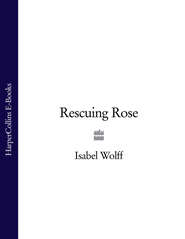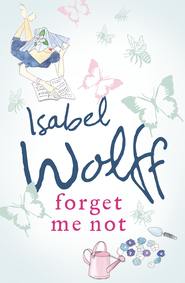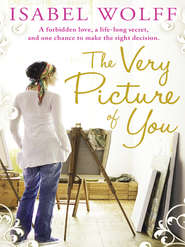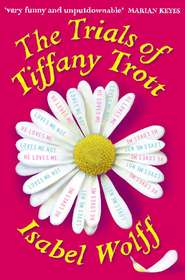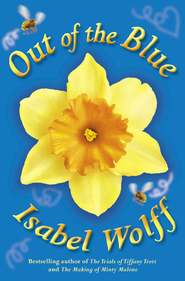По всем вопросам обращайтесь на: info@litportal.ru
(©) 2003-2024.
✖
Ghostwritten
Настройки чтения
Размер шрифта
Высота строк
Поля
‘I have explained.’
‘You haven’t – at least not in any way that I can understand. And as time’s gone on it’s bothered me more and more. This feeling I have, that although I love being with you, and desire you, I don’t really know you.’ He sighed. ‘You said that your mother neglected you.’
‘No. She looked after me. But she was distant and cold.’
‘That is neglect.’ Rick chewed his lip. ‘So … was she always like that?’
‘No.’ I saw my mother playing with me, reading to me. Holding my hand … ‘But as I grew older, it got worse; and it wasn’t as though I had a father to make up for it.’
‘Maybe that’s why she was so remote – though you’d think what happened might have brought her closer to you.’
‘Well … it didn’t.’
‘Is this the real reason why you don’t want kids?’ Rick asked. ‘Out of a fear that you’d be like that with your own child? Because you wouldn’t be, Jen.’
‘How do you know?’ I demanded bleakly. ‘I might be worse.’
‘Jenni, I wish that you’d at least talk to someone who might be able to help you overcome your fears.’
I laughed. ‘With a wave of their magic, psychotherapeutic wand? No. In any case, there’s nothing to resolve. I don’t want to have children. I like talking to them, and reading to them, and playing with them, and yes, I can see that having a child must in many ways be wonderful. But against that I set the never-ending, heart-wrenching anxiety of parenthood. I intend to protect myself from that.’
Rick stood up then walked over to the patio doors and unbolted them. He went out and sat on the wooden bench at the end of our small garden. After a moment he took a pack of cigarettes out of his breast pocket, lit one, released a nebula of smoke, then sat with his hands on his knees, head bowed.
I pushed back my chair, gathered up the manuscript, then went down the hall into my study. I dropped the pages beside the computer and sat staring at the darkened screen.
Three options … allowed to change … not open with me …
I heard an e-mail come in but ignored it. Was there any way Rick and I might resolve our problem? I refused to see a counsellor. I didn’t need counselling, and it would be more likely to destroy us than help us. Without thinking, I clicked the mouse and the screen flared into life.
I looked at the list of messages, desperate for distraction. The first three offered me laser lipo, cut-price hair extensions and fifty per cent off a pocket-sprung mattress. The fourth was headed Ghostwriting Enquiry and had been automatically forwarded from my website. It was from Nina’s godfather, Vincent Tregear. Surprised that he should contact me, I read it. It was a two-line message, asking me to call him. I was too upset to speak to him now. Instead, I opened the baby-guide document and stared listlessly at the screen, seeing the words, but not taking them in. Then I closed the document and, with an effort of will, I forced my mind away from Rick. I wiped my eyes, reached for the handset and dialled the number that Vincent had given.
After three rings the phone picked up, and I recognised Vincent’s voice.
He thanked me for getting back to him. ‘I know we hardly spoke at the wedding,’ he went on. ‘But I was very interested in what you were saying about writing memoirs. So I made a mental note of your website and last night I took a look at it and was impressed. The reason I’ve got in touch is because I’m wondering whether you might be able to help my mother write her memoirs.’
‘I see!’
‘She’s seventy-nine,’ he explained. ‘She’s in good health, and her memory’s fine. For years my brother and I have suggested that she write something about her life. She’s always been against the idea, but recently, to our surprise, she said that she would like to. But it won’t be easy as there are some parts of her life that she’s never talked about.’ Broken love affairs, I speculated, or marital difficulties. ‘She’s never talked about what happened to her during the war.’
My thoughts were racing, my mind already trying to shape a possible story for Vincent’s mother. She would have been a child at the time. Perhaps she’d lived in London, was evacuated, and was treated badly. Perhaps she’d stayed, and seen terrible things.
‘She doesn’t have a computer,’ I heard Vincent say. ‘So I offered to help her get her reminiscences onto paper; but she said that she’d find it too awkward, sharing such difficult memories with her own child.’
‘That’s completely understandable. I know I’d find it hard myself.’
‘So for a while we left it there; then last week, out of the blue, my mother suggested that we find someone for her to talk to. I thought about commissioning a journalist, but then at the wedding I heard you talking about what you do. So … how exactly would it work?’
I explained that I spend time with the person, and record hours of interviews with them. ‘With their permission I also read their diaries and correspondence,’ I went on. ‘I look at their photos and mementoes – anything that will help me to prompt their memories.’
‘Then you transcribe it all,’ he said.
‘Yes – except that it’s much more than a transcription. I’m trying to evoke that person, in their own voice. So I don’t simply ask them what happened to them, I ask them how they felt about it at the time; how they think their experiences changed them, what they’re proud of, or what they regret. It’s quite an intense exploration of who the person is and how they’ve lived – there’s a lot of soul-searching. Some people find it difficult.’
‘I can understand. And how long would it take?’
‘Three to four months. So … have a think,’ I added, still avidly wondering what his mother’s story might be.
‘I don’t need to think about it,’ Vincent responded. ‘I’m keen to go ahead. In fact I wanted to ask if you could start next week?’
‘That’s … soon.’
‘It is, but we’d like to have it done in time for my mother’s eightieth in late January. It’s to be our present to her.’
‘I see. Well, I’d have to check my work diary.’ I didn’t want to let on that there was precious little in it. ‘But before I do, could you tell me a bit more?’ I reached for a pad and pen, glad to have this distraction.
‘My mother’s farmed for most of her life.’ I scribbled farmer. ‘It’s not a big farm,’ he explained, ‘just a hundred and twenty acres; but it’s been in my father’s family since the 1860s. He died ten years ago.’
Widowed, I wrote. Farm. 150 yrs.
‘Mum has always worked very hard, and still works hard,’ Vincent went on. ‘She runs the farm shop and she grows most of what’s sold in it.’
‘And what sort of education did she have? Did she go to university?’
‘No. She married my father when she was nineteen.’
Married @ 19 … Mrs Tregear. ‘And what’s her first name?’ Vincent told me and I wrote it down. ‘That’s pretty.’
‘It’s Klara with a “K”.’
‘So … is your mother German?’
‘No. Dutch.’
As I turned the C into a K, I imagined Klara growing up in Holland, under German occupation. Perhaps she’d known Anne Frank, or Audrey Hepburn – they’d have been about the same age. I saw Klara standing in a frozen field trying to dig up tulip bulbs to eat.
‘My mother grew up in the tropics,’ I heard Vincent say. ‘On Java. Her father was the manager of a rubber plantation.’
Plantation … Java …
‘When the Pacific War started, after Pearl Harbor, she was interned with her mother and younger brother.’ Interned … I imagined bamboo fencing and barbed wire.
‘We know that internees suffered terrible privation, as well as cruelty, but she’s rarely talked about it, except to mention the odd incident in this camp or that.’
I’d have to do some research. I scribbled Dutch East Indies, then Japanese occupation.
‘Vincent, I would like to take on this commission.’
‘Really? That’s great!’






